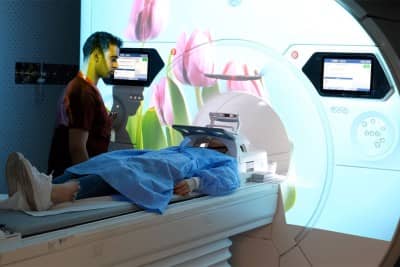- E-Magazine
Adult Psychiatry deals with the diagnostic evaluation and treatment of psychiatric disorders in individuals aged 18 and over.
Services are provided in inpatient wards and outpatient outpatient clinics using the most modern tools and methods. Our team consisting of Psychiatry Specialists, Specialist Clinical Psychologists, Social Workers, Occupational Therapy Specialists work in cooperation during the comprehensive evaluation and treatment process of the client. After the clinical examination, brain imaging techniques, laboratory-blood tests, neuropsychological tests, and consultations with other medical branches from other branch physicians and social work report, the treatment plan is created within the framework of the relevant clinical guidelines according to the preliminary diagnosis/diagnosis.
Treatment delivery is planned as outpatient, day hospital or inpatient ward, prioritizing the patient's best interest and respecting his/her individual autonomy and preferences. In line with the same principles, all treatment facilities available in modern medicine are used with the aim of maximizing treatment success. In the treatment scheme shaped according to the needs of the patient, services such as drug therapy and other biological treatments (brain stimulation techniques, phototherapy, etc.), individual/couple/family and group psychotherapy, social work, occupational therapy are used in appropriate time frames in order to achieve the best efficiency.
Contents
Bipolar Mood Disorder (Manic-Depressive Illness)
Bipolar mood disorder is a mental health condition in which a person experiences extreme fluctuations in mood. Manic periods are characterized by high energy, happiness or irritability, while depressive periods are characterized by low energy and sadness. Treatment usually involves medication and psychotherapy, and early diagnosis and appropriate treatment can enable people to lead a normal life and control episodes.
Depression
Depression is a serious mood disorder characterized by persistent sadness, loss of interest and lack of pleasure; it can be caused by genetic, biological, environmental and psychological factors and is accompanied by symptoms such as fatigue, changes in appetite and sleep problems. Left untreated, it can have serious consequences, but can be managed with antidepressant medication, psychotherapy and lifestyle changes, and early diagnosis and treatment can help improve quality of life.
Generalized Anxiety Disorder
Generalized anxiety disorder is an anxiety disorder characterized by excessive and uncontrollable worry, which negatively affects a person's daily life; it is characterized by symptoms such as constant tension, restlessness, fear, fatigue and difficulty concentrating. Left untreated, it can seriously affect work, school and social life, but can be managed and quality of life can be improved with cognitive behavioral therapy, medication and lifestyle changes.
Panic Attack
A panic attack is an anxiety attack characterized by a sudden and intense feeling of fear or discomfort, usually starting suddenly and unexpectedly. During these attacks, the person experiences intense fear that they will lose control, go crazy or die. Treatment options include cognitive behavioral therapy, medication and relaxation techniques, which can reduce the frequency and severity of attacks.
What are the symptoms of a panic attack?
The symptoms of a panic attack occur suddenly and unexpectedly, plunging the person into a state of severe fear and discomfort, including heart palpitations, sweating, trembling, shortness of breath, chest pain, nausea, dizziness, chills or hot flashes, numbness, a sense of unreality and fear of death.
Panic Disorder
Panic disorder is an anxiety disorder characterized by recurrent and unexpected panic attacks, which are manifested by physical symptoms such as heart palpitations, sweating and shortness of breath. Treatment includes cognitive behavioral therapy, medication and lifestyle changes to manage behavioral changes such as avoiding social situations and restricting daily activities.
Social Anxiety Disorder / Social Phobia
Social anxiety disorder, also known as social phobia, is an anxiety disorder characterized by intense anxiety and fear in social situations. People avoid social situations for fear of negative evaluation and show physical symptoms. Treatment can include cognitive behavioral therapy, exposure therapy, and medication, all of which improve coping skills in social situations.
Eating Disorders
Eating disorders are characterized by abnormal eating habits and excessive concerns about body weight or shape. Anorexia nervosa, bulimia nervosa and binge eating disorder fall into this category. Treatment includes nutritional counseling, psychotherapy and sometimes medication.
Adult Attention Deficit Hyperactivity Disorder
Adult attention deficit hyperactivity disorder (ADHD) is a neurodevelopmental disorder characterized by attention deficit, hyperactivity and impulsivity. Treatment includes medication, behavioral therapy and educational support.
Schizophrenia
Schizophrenia is a chronic mental health condition that causes severe disturbances in thought, emotion and behavior and is characterized by symptoms such as hallucinations and delusions. Treatment includes antipsychotic medication, therapy, rehabilitation and support groups; early intervention and ongoing follow-up can improve symptom management and quality of life.



























